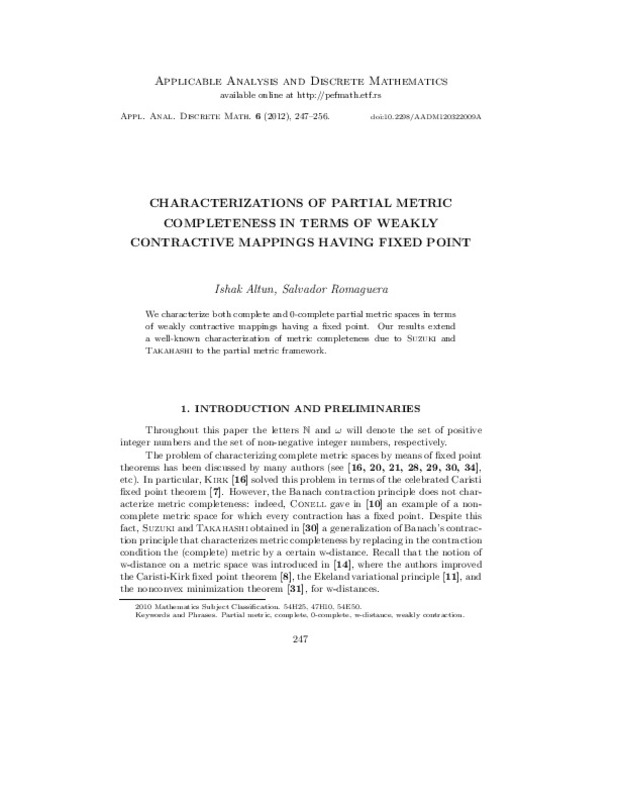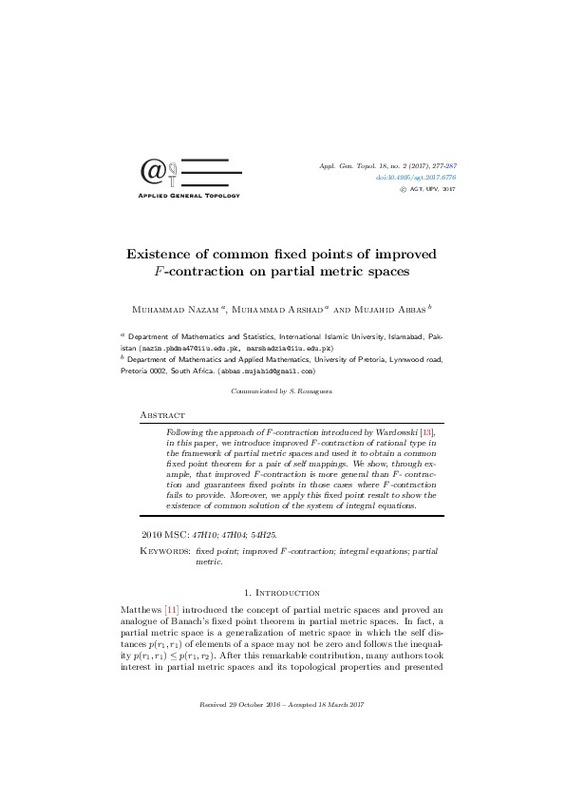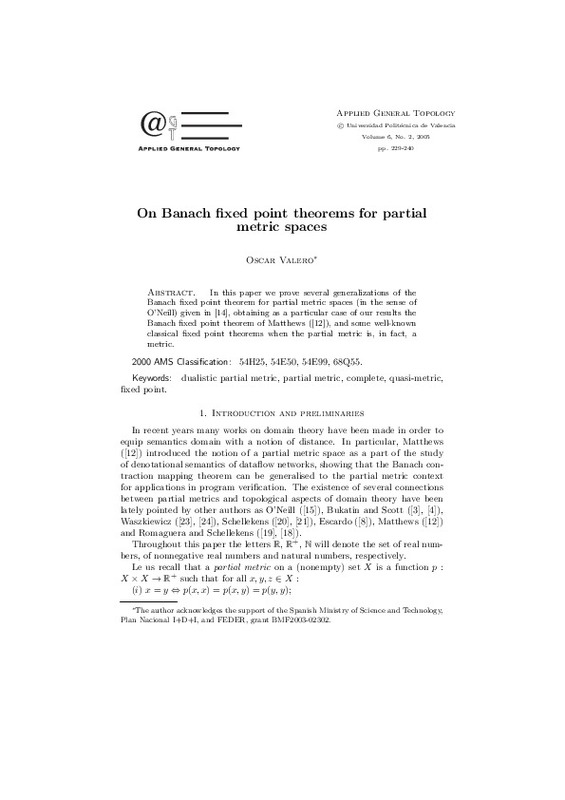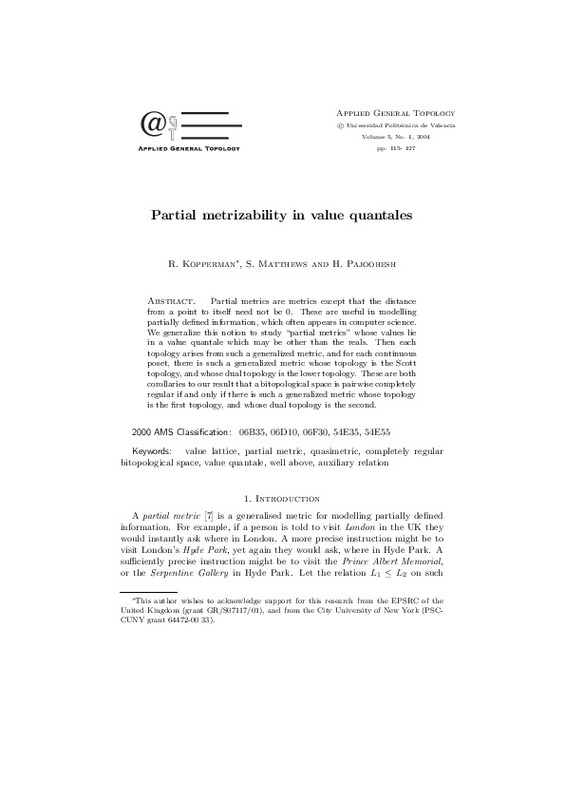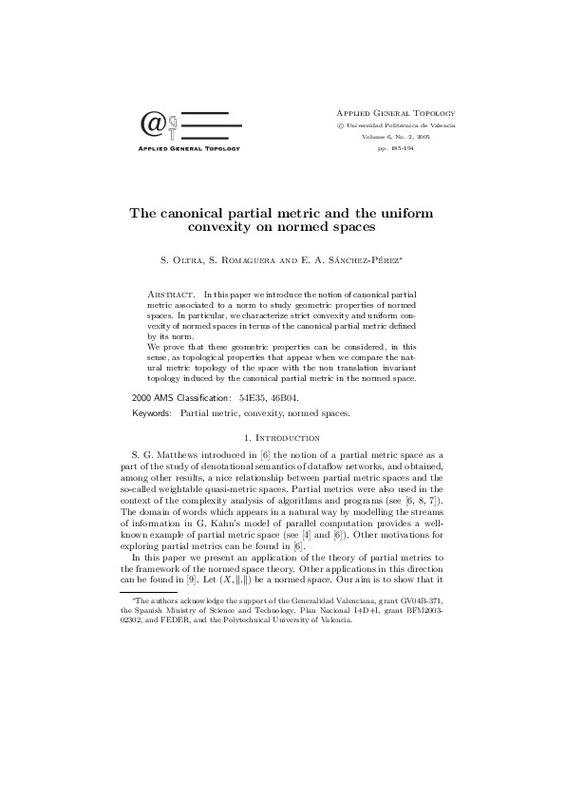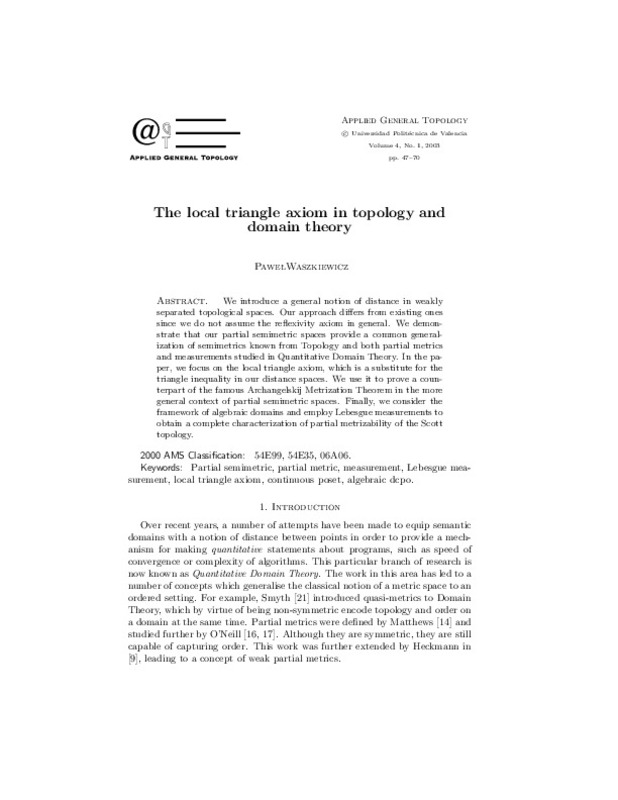

Listar por palabra clave "Partial metric"
RiuNet: Repositorio Institucional de la Universidad Politécnica de Valencia
- RiuNet repositorio UPV
- :
- Listar por palabra clave
JavaScript is disabled for your browser. Some features of this site may not work without it.
Buscar en RiuNet
Listar
Mi cuenta
Ayuda RiuNet
Admin. UPV
Listar por palabra clave "Partial metric"
Mostrando ítems 1-7 de 7
-
Altun, Ishak; Romaguera Bonilla, Salvador (University of Belgrade and Academic Mind, 2012)We characterize both complete and 0-complete partial metri c spaces in terms of weakly contractive mappings having a fixed point. Our resu lts extend a well-known characterization of metric completeness due ...
-
Nazam, Muhammad; Arshad, Muhammad; Abbas, Mujahid (Universitat Politècnica de València, 2017-10-02)[EN] Following the approach of $F$- contraction introduced by Wardowski \cite{DW}, in this paper, we introduce improved $F$-contraction of rational type in the framework of partial metric spaces and used it to obtain a ...
-
Valero, Oscar (Universitat Politècnica de València, 2005-10-01)[EN] In this paper we prove several generalizations of the Banach fixed point theorem for partial metric spaces (in the sense of O’Neill) given in, obtaining as a particular case of our results the Banach fixed point theorem ...
-
Kopperman, Ralph D.; Matthews, S.; Pajoohesh, H. (Universitat Politècnica de València, 2004-04-01)[EN] Partial metrics are metrics except that the distance from a point to itself need not be 0. These are useful in modelling partially defined information, which often appears in computer science. We generalize this notion ...
-
Pajoohesh, Homeira (Universitat Politècnica de València, 2024-10-01)[EN] If f : X → X is a function, the associated functional Alexandroff topology on X is the topology whose closed sets are {A ⊆ X : f(A) ⊆ A}. We prove that every functional Alexandroff topology is pseudopartial metrizable ...
-
Oltra, S.; Romaguera, Salvador; Sánchez-Pérez, E.A. (Universitat Politècnica de València, 2005-10-01)[EN] In this paper we introduce the notion of canonical partial metric associated to a norm to study geometric properties of normed spaces. In particular, we characterize strict convexity and uniform convexity of normed ...
-
Waszkiewicz, Pawel (Universitat Politècnica de València, 2003-04-01)[EN] We introduce a general notion of distance in weakly separated topological spaces. Our approach differs from existing ones since we do not assume the reflexivity axiom in general. We demonstrate that our partial ...
Mostrando ítems 1-7 de 7

Universitat Politècnica de València. Unidad de Documentación Científica de la Biblioteca (+34) 96 387 70 85 · RiuNet@bib.upv.es


